SPECIAL REPORT: By Selwyn Manning in Auckland
The dilemma facing whistleblowers, journalists and publishers who risk it all to help the world’s people to become more informed. WikiLeaks founder Julian Assange finds himself crushed between these two counterbalances — the asserted right of powerful nations to operate in secret, and the right of the press to reveal what goes on in the public’s name.
Article sponsored by NewzEngine.com
This week, on October 27-28, Julian Assange appeared before a United Kingdom court defending himself against an appeal that, if successful, would see him extradited to the United States to face a raft of indictments that ultimately could see him spend the rest of his life in prison.
The US lawyers argued largely that human rights reasons that caused the UK courts to reject extradition to the US could be mitigated. That Julian Assange’s case could be heard in Australia and if found guilty serve out jail time in his home country rather than the US.
Assange’s defence lawyer Edward Fitzgerald QC argued: “In short there is a large and cogent body of extraordinary and unprecedented evidence… that the CIA has declared Mr Assange as a ‘hostile’ ‘enemy’ of the USA, one which poses ‘very real threats to our country’, and seeks to ‘revenge’ him with significant harm.” The lawyers said the United States assurances were “meaningless”.

“It is perfectly reasonable to find it oppressive to extradite a mentally disordered person because his extradition is likely to result in his death.” Fitzgerald QC added that a court must have the power to “protect people from extradition to a foreign state where we have no control over what will be done to them”.
Lord Chief Justice Lord Burnett, sitting with Lord Justice Holroyde, said: “You’ve given us much to think about and we will take our time to make our decision.”
The judges then reserved their decision. It is expected Assange’s fate will be revealed within weeks.
In this Special Report, we examine why the US wants this man. And we detail the space between whistleblowers, journalists and publishers who risk it all to help the world’s people to become more informed. Julian Assange finds himself crushed between these two counterbalances: the asserted right of powerful nations to operate in secret, and the right of the press to reveal what goes on in the public’s name.
Should Julian Assange be extradited from the UK to face indictments in the United States? Or should he be set free and offered a safe haven in a country such as Russia or even New Zealand?
It was always going to come down to this: Is Julian Assange captured by the assumptions people have of him, or a blurred line between a public’s right and a state’s wrong.
‘Manhunt Timeline’
The United States effort to capture or kill Assange goes back to 2010. But his inclusion in what’s called the “Manhunt Timeline” soon lost its sting when, under US President Barack Obama, it was believed if charges against Assange were brought before the US courts for his publishing activity, then he would be found not guilty due to the US First Amendment “freedom of the press” constitutional protections.
But everything changed with a new president, and a massive leak to Wikileaks of CIA secret information on 7 March 2017.
That leak of what was called Vault 7 information “detailed hacking tools the US government employs to break into users’ computers, mobile phones and even smart TVs.”
CBS News reported at the time: “The documents describe clandestine methods for bypassing or defeating encryption, antivirus tools and other protective security features intended to keep the private information of citizens and corporations safe from prying eyes.” (CBS News)
The Vault 7 leak (and earlier leaks going back to 2010) also revealed information that the US security apparatus argued compromised the safety of its personnel around the world. This aspect is vital to the US Justice Department’s case against Julian Assange.
Among a complex web of indictments and superseding indictments, the US alleges Wikileaks and Assange conspired with whistleblowers (significant among them Chelsea Manning) in what it argues was a conspiracy against the US interest. It also argues that Wikileaks and Julian Assange failed to satisfactorily redact leaked documents before dissemination or publication of the same — including details that put US personnel and agents at risk.
Prominent New Zealand investigative journalist Nicky Hager had knowledge of Wikileaks’ processes, and, going back to 2010, spent time working with Wikileaks on redacting documents.
Hager testified at The Old Bailey in London in September 2020 before a hearing of the Assange case and, according to The Australian, said: “My main memory was people working hour after hour in total silence, very concentrated on their work and I was very impressed with efforts that they were taking (to redact names).” Hager added that he himself had redacted “a few hundred” Australian and New Zealand names.
On cross examination, The Australian reported: “Hager referred in his testimony to the global impact of the publication of the collateral murder video, which shows civilians being gunned down in Iraq from an Apache helicopter, which led to changes in US military policies. He claimed it had a ‘similar galvanising impact as the video of the death of George Floyd’.” (The Australian)
But it was the Vault 7 leak that triggered the then Central Intelligence Agency (CIA) director Mike Pompeo to act. After that leak, Pompeo set out to destroy Wikileaks and its publisher Julian Assange.
Pompeo vs Assange
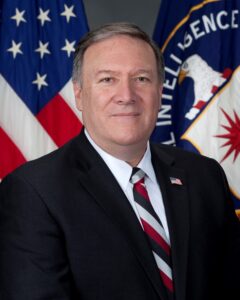
Mike Pompeo was appointed as CIA director in January 2017. The Vault 7 leak occurred on his watch. It was personal, and in April 2017 he defined Wikileaks as a “non-state hostile intelligence service”.
That definition triggered a shift of approach. The US intelligence apparatus and its Justice Department counterpart then re-asserted that Wikileaks and its publisher and editor-in-chief Julian Assange were enemies of the United States.
Pompeo’s definition paved the way for a more targeted operation against Assange. But, for the time being, the US public modus operandi was to ensure extradition proceedings, through numerous hearings and appeals, were dragged out while stacking an increasing number of complex indictments on the charge-sheet.
The definitions ensured the UK’s corrections system regarded Assange as a high risk and dangerous prisoner hostile to the UK’s special-relationship partner, the USA.
The tactic is well used by governments and states around the world. But in this case it appears beyond cold and calculated. As the US applied a figurative legal-ligature around the neck of Julian Assange it knew his circumstances — that he was imprisoned, isolated, in solitary confinement, on a suicide watch, handled by prison guards under a repetitive high security risk protocol. It knew the psychological impact was compounding, causing legal observers, his lawyers, his supporters — even the judge overseeing the extradition proceedings — to fear that the wall before Assange of ongoing litigation, compounded with the potential for extradition and possible life imprisonment, would overwhelm him.
Let’s detail reality here. In real terms, being on suicide-watch as a high security risk prisoner, meant every time Assange left his cell for any reason (including when meeting his lawyers), on return he would be stripped, cavity searched (which includes being forced to squat while his rectum is digitally searched, and a mouth and throat search).
This was a similar security search protocol that was used against Ahmed Zaoui while he was held at New Zealand’s Paremoremo maximum security prison. At that time Zaoui was regarded as a security risk to New Zealand. He was of course later found to be a man of peace and given his liberty. Sometimes things are not what they initially seem.
In the UK, for Assange the monotonous grind of total solitude and indignity ticked on. In the US in March 2018, Mike Pompeo was set to be promoted. He received the then US President Donald Trump’s nomination to replace Rex Tillerson as US Secretary of State. The US Senate confirmed Pompeo’s nomination and he was sworn in on 26 April 2018.
Pompeo quickly became one of Trump’s most trusted and powerful White House insiders. As Secretary of State, Pompeo toured the globe’s foreign affairs circuit asserting the Trump Administration’s position on governments throughout the world. As such, Pompeo was regarded as one of the world’s most powerful men.
Looking back, Pompeo wasn’t the first high ranking US official to regard Assange as an enemy of the state. The Edward Snowden leaks of 2014 revealed that the US government had in 2010 added Assange to its “Manhunting Timeline” — which is an annual list of individuals with a “capture or kill” designation.
This designation came during the early stages of the Obama Administration years. However, US investigations into Wikileaks then suggested Assange had not acted in a way that excluded him from being defined as a journalist and therefore it was likely Assange, if tried under US law, would be provided protections under the First Amendment constitutional clauses.
But when Pompeo advanced toward prominence, Obama was gone. And under Donald Trump, the US appeared to ignore such constitutional rocks in the road. Trump had his own beef with the US Fourth Estate, and the conditions for respecting First Amendment privilege had deteriorated.
Did Trump stop the CIA kidnap or kill plan?
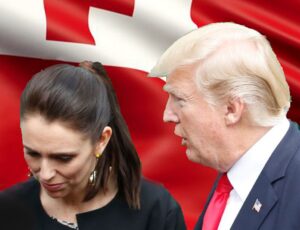
Perhaps we understand the Trump Administration’s mindset more now in the wake of the 6 January 2021 insurrection where supporters of Trump stormed the US House of Representatives seeking to overturn the election result and reinstate Trump as President. Throughout much of that destructive day, Trump reportedly remained at the White House while the mob erected a gallows and sought out Vice-President Mike Pence. The mob’s reason? Because Pence had begun the process of certifying electoral college writs, an essential step toward swearing in as President the newly elected Joe Biden.
It may reasonably be argued that Trump and some members of his Administration displayed a disregard for elements of the US Constitution. But, it must also be said, that Trump had at times displayed an empathy for Julian Assange’s situation.
This week The Hill reported on Trump’s view of Assange through an interview with the former president’s national security advisor, Keith Kellogg (who is also a retired US Army Lieutenant General.
Kellogg told The Hill: “He (Trump) looked at him (Assange) as someone who had been treated unfairly. And he kind of related him to himself … He said there’s an unfairness there and I want to address that.”
Kellogg added that Trump saw similarities between Assange and himself in that Trump would not back down in the face of media attacks: “I think he kind of saw that with Julian in the same way, like ‘ok, this guy’s not backing down’.” (The Hill)
Kellogg’s account seems incongruous to what we now know. On 26 September 2021, a Yahoo News media investigation delivered a bombshell. It revealed how the CIA had planned to kidnap or kill Assange.
But more on the detail of that below. First, let’s look at a confusing picture of how former President Trump’s words do not meet his Administration’s actions.
We know that “someone” in the Trump Administration put a halt to the CIA’s kill or capture plan. We just do not know whether Trump commanded its cessation, or whether Pompeo or Trump’s attorney-general/s operated outside the former president’s orbit. But we do know the US Justice Department pursued Assange through an intensifying relentless application of indictments of increasing severity and complexity. If it is an MO, then it is reasonable to suggest the legal wall of indictments and the CIA’s plan to kill or capture were potentially one of the same.
Which segues back to the details of the US case against Assange.
The US Justice Department vs Assange
In March 2019, The Washington Post reported that US Whistleblower Chelsea Manning had been subpoenaed to testify before a grand jury in the investigation of Julian Assange. The Post correctly suggested that the US Justice Department appeared interested in pursuing Wikileaks before a statute of limitations ran out.
Washington Post reported: “Steve Vladeck, a professor at the University of Texas at Austin School of Law, said the Justice Department likely indicted Assange last year to stay within the 10-year statute of limitations on unlawful possession or publication of national defense information, and is now working to add charges.” (Washington Post)
Then, On April 11 2019, after high-level bilateral meetings between the US and Ecuador, the Ecuadorian Government revoked Assange’s asylum. The UK’s Metropolitan Police were invited into Ecuador’s London embassy and Assange was arrested.
Once Assange was in custody (pending the outcome of a court ruling of what eventually became a 50 week sentence for breaching bail) the United States made its move. On 11 April 2019 (the same day Ecuador evicted him) US prosecutors unsealed an indictment against Assange referring back to information that Wikileaks had released in stages from 18 February 2010 onwards. (US Justice Department)
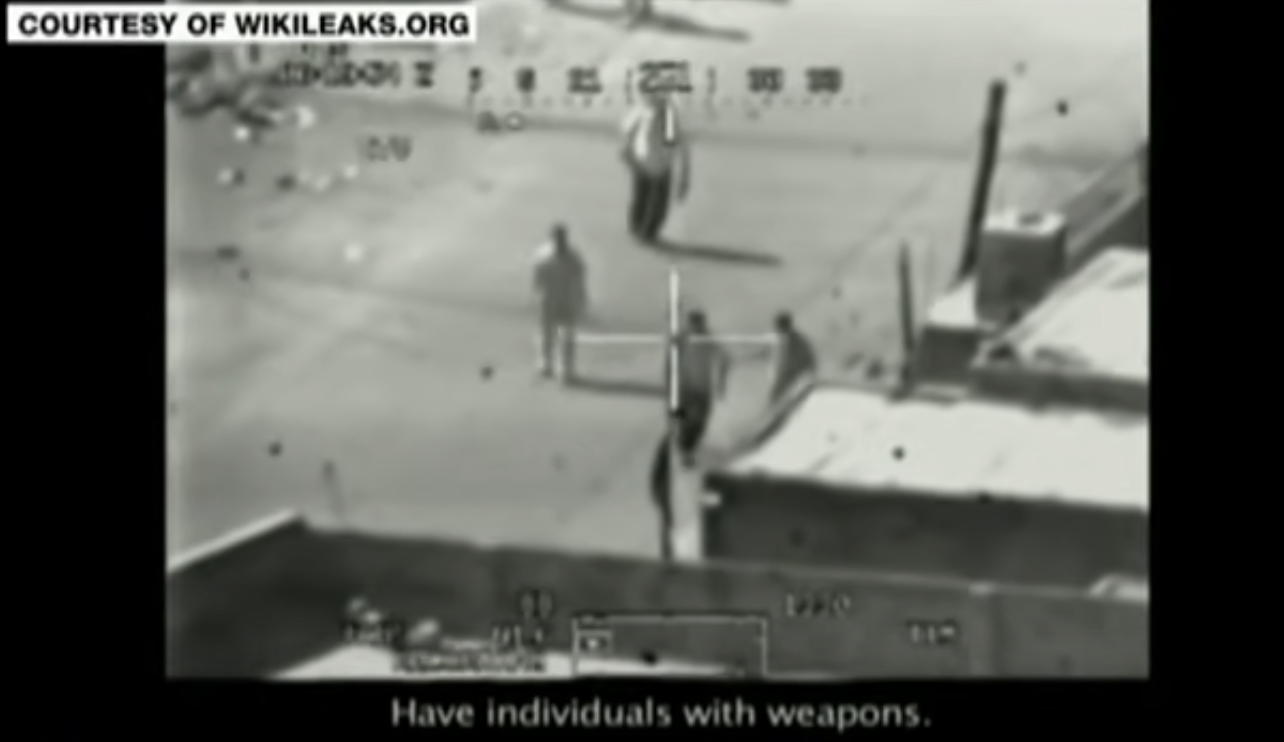
This video, known as the collateral murder video, was among the Wikileaks release. The video is of US military personnel killing what they initially thought were Iraqi insurgents. It also displays an apparent indifference by US personnel when, shortly after, it was revealed by ground troops that there were civilians killed, including women and children (and also what were later found to be journalists). The leaked video exposed the United States to potential allegations of war crimes.
The video, and the accompanying dossier of US classified documents, shocked the world and revealed what had been covered up by US secrecy. The information that was leaked by then US Military intelligence analyst Chelsea Manning, and published by Wikileaks and provided to a select group of the world’s most prominent media, was arguably a tipping point for public sentiment regarding the US invasion and occupation of Iraq. It was, in the <2010 decade, on a par with revelations of abuses of detainees by US personnel at Abu Ghraib prison.
In a release to the US press, the Justice Department’s office of international affairs stated: “According to court documents unsealed today, the charge relates to Assange’s alleged role in one of the largest compromises of classified information in the history of the United States.”
It connected to how Wikileaks had acquired documents from US whistleblower Chelsea Manning. The leak contained 750,000 documents defined as “classified, or unclassified but sensitive” military and diplomatic documents. The documents included video. The sum of the leaks detailed what were regarded generally as atrocities committed by American armed forces in Iraq and Afghanistan.
The leaked material was also published by The New York Times, Der Spiegel and The Guardian. In May 2010, Manning was identified then charged with espionage and sentenced to 35 years in a US military prison. Later, in January 2017, just three days before leaving office, US President Barack Obama commuted Manning’s sentence.
On 23 May 2019, the US Justice Department issued a statement confirming Assange had been further charged in an 18-count superseding indictment that alleged violation of the Espionage Act 1917. It specifically alleged (among other charges) that Assange conspired with Chelsea Manning in late 2009 and that: “… Assange and WikiLeaks actively solicited United States classified information, including by publishing a list of ‘Most Wanted Leaks’ that sought, among other things, classified documents. Manning responded to Assange’s solicitations by using access granted to her as an intelligence analyst to search for United States classified documents, and provided to Assange and WikiLeaks databases containing approximately 90,000 Afghanistan war-related significant activity reports, 400,000 Iraq war-related significant activities reports, 800 Guantanamo Bay detainee assessment briefs, and 250,000 US Department of State cables.” (US Justice Department)
The superseding indictment added: “Many of these documents were classified at the Secret level.”
It’s also important to note, a superseding indictment, in this context carries heavy weight. It isn’t merely a charge lodged by an investigative wing of government, but issued by a US grand jury.
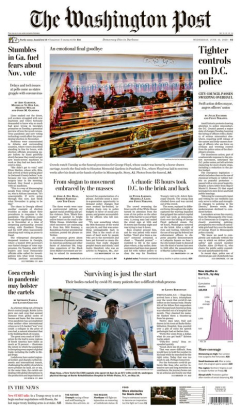
The May 2019 superseding indictments ignited a stern rebuttal from powerful media institutions.
The Washington Post and The New York Times, as well as press freedom organisations, criticised the government’s decision to charge Assange under the Espionage Act, characterising it as an attack on the First Amendment to the United States Constitution, which guarantees freedom of the press. On 4 January 2021, District Judge Vanessa Baraitser ruled against the US request to extradite him and stated that doing so would be “oppressive” given his mental health. On 6 January 2021, Assange was denied bail, pending an appeal by the United States. (Wikipedia.org)
In normal times an assault on the US First Amendment through a clever legal move would destroy a presidency. But these were not normal times.
Ultimately, the powerful US Fourth Estate fraternity failed to ward off the Trump Administration’s men. Trump himself was by this time already hurling attacks on the credibility and purpose of the United States media. And, he tapped in to a constituency that distrusted what it heard from journalists.
Then on 24 June 2020, the US Justice Department delivered more charges against Assange, this time with an additional superseding indictment that included allegations he conspired with “Anonymous” affiliated hackers: “In 2010, Assange gained unauthorised access to a government computer system of a NATO country. In 2012, Assange communicated directly with a leader of the hacking group LulzSec (who by then was cooperating with the FBI), and provided a list of targets for LulzSec to hack.” (US Justice Department)
As the Trump presidency ran out of steam, and arguably created its own attacks on the US national interest, Democratic Party candidate Joe Biden won the election and became the 46th President of the United States.
Why Assange was imprisoned in the UK
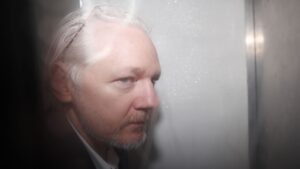
Julian Assange was tried before the UK courts and convicted for breaching the Bail Act. He was sentenced to 50 weeks in prison. He was expected to have been released after five to six months, but due to the US extradition proceedings and appeal he was held indefinitely.
The initial bail conditions (of which Assange was found to have breached) were set resulting from an alleged sexual violence allegation made in Sweden in 2010. Assange had denied the allegations, and feared the case was designed to relocate him to Sweden and then onto the US via a legal extradition manoeuvre — hence this is why he sought asylum at the Ecuadorian Embassy. Assange was never actually charged by Swedish authorities nor their UK counterparts, but rather the initial bail breach related to a move to extradite him to Sweden.
Also, as a side-note: in November 2019, Swedish prosecutors dropped their investigation into allegations of sexual violence crime. The BBC reported that Swedish authorities dropped the case as it had: “Weakened considerably due to the long period of time that has elapsed since the events in question.”
Meanwhile, Assange was imprisoned at London’s Belmarsh maximum-security prison where he was incarcerated indefinitely pending the outcome of US extradition proceedings.
There is an irony that in January 2021, the week Assange was denied bail pending the outcome of the US-lodged appeal, back in the US a mob loyal to Trump attempted a coup d’etat against the US constitution.
Out with Trump, in with Biden
On 20 January 2021, Joe Biden was sworn in as US President. Around the world a palpable mood of change was anticipated. It’s fair to say those involved or observing the Assange case were hopeful the United States under Joe Biden’s presidency would withdraw the initial charges and superseding indictments.
But, that was not to be.
Then on 26 September 2021, a Yahoo News media investigation delivered a bombshell. It revealed how the CIA had planned to kidnap or kill Assange.
The investigation’s timeline revealed a plan was developed in 2017 during Pompeo’s tenure at the CIA and considered numerous scenarios where Assange could be liquidated while he resided at the Ecuadorian Embassy. The investigation was backed by “more than 30 US official sources”. (Yahoo News)
The media investigation stated: “… the CIA was enraged by WikiLeaks’ publication in 2017 of thousands of documents detailing the agency’s hacking and covert surveillance techniques, known as the Vault 7 leak.”
It added that Pompeo: “was determined to take revenge on Assange after the (Vault 7) leak.”
Apparently, the CIA believed Russian agents were planning to remove Assange from the Ecuadorian Embassy and “smuggle” him to Russia: “Among the possible scenarios to prevent a getaway were engaging in a gun battle with Russian agents on the streets of London and ramming the car that Assange would be smuggled in.”
It appears a wise-head in the Trump Administration ordered a halt to the CIA plan due to legal concerns. Officials cited in the investigation suggested there were: “Concerns that a kidnapping would derail US attempts to prosecute Assange.”
It would also be reasonable to suggest that a prosecution would be difficult should Assange be dead.
As the US extradition appeal loomed, Julian Assange’s US-based lawyer Barry Pollack reportedly said: “My hope and expectation is that the UK courts will consider this information (the CIA plot) and it will further bolster its decision not to extradite to the US.”
Assange’s partner Stella Morris, on the eve of the US extradition appeal proceedings also said reports of the CIA’s plan “was a game-changer” in his fight against extradition from Britain to the United States. (Reuters)
Greg Barnes, special council and Australian human rights lawyer and advocate spoke this week to a New Zealand panel (A4A via the internet): “Now we know that the CIA intended effectively to murder Assange. For an Australian citizen to be put in that position by Australia’s number one ally is intolerable. And I think in the minds of most Australians the view is that the Australian Government ought to intervene in this particular case and ensure the safety of one of its citizens.”
Barnes added that the Assange case is now a human rights case: “I can tell you that the rigours of the Anglo-American prison complex which we have here in Australia and in which Julian is facing at Belmarsh (prison in London) are such that very few people survive that system without having severe mental and physical pain and suffering for the rest of their lives.
“This should not be happening to an Australian citizen, whose only crime, and I put quotes around the word crime, has been to reveal the war crimes of the United States and its allies.” (A4A YouTube)
The respected journalist advocacy organisation Reporters Without Borders (Reporters Sans Frontières, or RSF), this week called for the US case against Assange to be closed and for Assange to be “immediately released”. (Reporters Without Borders)
RSF added: “During the two-day hearing, the US government will argue against the 4 January decision issued by District Judge Vanessa Baraitser, ruling against Assange’s extradition to the US on mental health grounds. The US will be permitted to argue on five specific grounds, following the High Court’s decision to widen the scope of the appeal during the 11 August preliminary hearing. An immediate decision is not expected at the conclusion of the 27-28 October hearing, but will likely follow in writing several weeks later.”
RSF concluded: “If Assange is extradited to the US, he could face up to 175 years in prison on the 18 counts outlined in the superseding indictment… (If convicted) Assange would be the first publisher pursued under the US Espionage Act, which lacks a public interest defence.”
RSF recently joined a coalition of 25 press freedom, civil liberties and international human rights organisations in calling again on the US Department of Justice to drop the charges against Assange.
Beyond Belmarsh Prison – human rights and asylum options
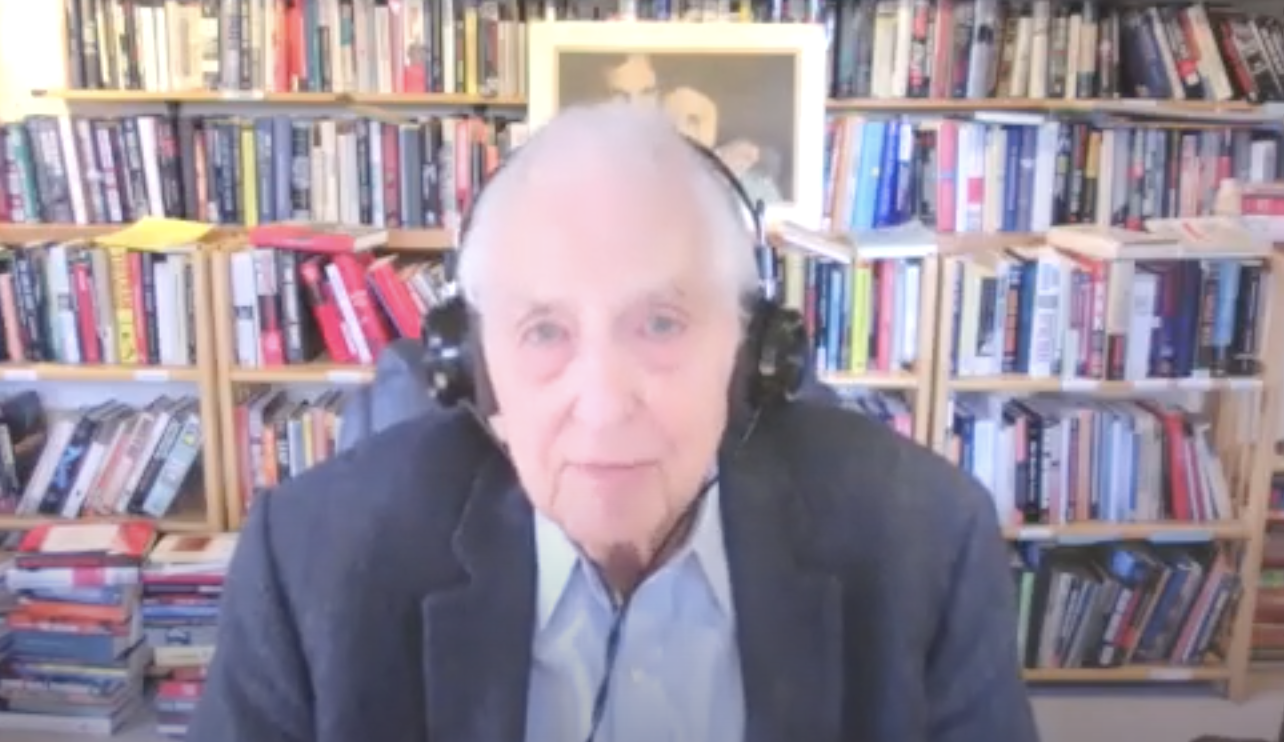
There remains a logical and considered question as to what will become of Julian Assange should his legal team successfully defend moves of extradition to the United States.
Whistleblower Edward Snowden has found relative safety living inside the Russian Federation. But beyond Russia there are few safe-haven options available to Julian Assange.
This week a group called A4A (Aotearoa for Assange) coordinated an online panel of human rights advocates and whistleblowers to consider whether New Zealand should become involved.
It was a serious move. The panel included the United States’ highly respected Pentagon Papers whistleblower Daniel Ellsberg. (Pentagon Papers, Wikipedia)
Daniel Ellsberg told the panel: “A trial under (the Espionage Act) cannot be a fair trial as there is ‘no appeal to motives, impact or purposes’.”
“A trial under the Espionage Act could not permit that person to tell the jury why they did what they did,” Daniel Ellsberg said. “It is shameful that President Biden has gone in the footsteps of President Trump. It is shameful for President Biden to have continued that appeal.
“To allow this to go ahead is to put a target on the back of every journalist in the world who might consider doing real investigative journalism of what we call the National Defence or National Security…”
It’s a valid point for those that work within the sphere of Fourth Estate public interest journalism. While in New Zealand, there are rudimentary whistleblower protections, they fail to protect or ensure anonymity. For journalists, if a judge orders a journalist to reveal her or his source(s), then the journalist must consider breaching the code of ethics required from the profession, or acting in contempt of court.
In the latter case, a judge can, in New Zealand, order the journalist to be held in custody for contempt, and it should be pointed out there is no time limit of incarceration. Defamation law is equally as draconian. In New Zealand (unlike the United States) a journalist accused of defamation shoulders the burden of proof — to prove a defamation was not committed.
The chill factor (a reference to pressures that cause journalists to abandon deep and meaningful reportage) is real.
Daniel Ellsberg knows what this means. And he fears, that if the US wins its appeal against Assange, it will erode the Fourth Estate from reporting on what goes on behind the scenes with governments: “… there will be more Vietnams, more Iraqs, more acts of aggression… A great deal rides (on this case) on the possibility of freedom.”

His comments connect remarkably with those of former New Zealand prime minister, and former administrator of the United Nations Development Programme (UNDP), Helen Clark.
In a previous online discussion, Clark was asked what she thought of Julian Assange’s case. In a considered reply she said: “You do wonder when the hatchet can be buried with Assange, and not buried in his head by the way.
“I do think that information that’s been disclosed by whistleblowers down the ages has been very important in broader publics getting to know what is really going on behind the scenes.
“And, should people pay this kind of price for that? I don’t think so. I felt that Chelsea Manning for example was really unduly repressed.
“The real issue is: the activities they were exposing and not the actions of their exposure,” Helen Clark said.
The US appeals case this week is not litigating the merits of its indictments. But rather it has attempted to mitigate the reasons Judge Vanessa Baraitser denied extradition in January 2021. The US legal team has suggested to the UK court that Assange’s human rights issues could be minimised should he face trial in his native Australia, that if found guilty that he could serve out his sentence there. It gave, however, no assurances that this would occur.
On the eve of the appeal, and appearing before the A4A online panel was Dr Deepa Govindarajan Driver.
Dr Driver is an academic with the University of Reading (UK) and a legal observer very familiar with the Assange case. The degree of human rights abuses against Assange disturb her.
Dr Driver detailed what she had observed: “Julian Assange was served the second superseding indictment on the first day of trial. When he took his papers with him, back to the prison, his privileged papers were taken from him. He was handcuffed, cavity searched, stripped naked on a daily basis. [This is] a highly intelligent human being who we already know is on the Autism Spectrum. To be put through the indignities and arbitrariness of the process which is consistently working in a way that doesn’t stand with normal process…
“For somebody who has gone through all of this for a number of years, it has its psychological impact. But it is not just psychological, the physical effects of torture are pretty severe including the internal damage that he has.”
She added: “We expect the high court will recognise the kind of serious gross breaches of Julian’s basic rights and the inability for him to have a fair trial in the UK or in the US and that this case will be dismissed immediately.”
On the merits of whistleblowers, Dr Driver said: “You can see through the Vault 7 leaks how much the state knows about what is going on in your daily lives… As an observer in court I see how he (Julian Assange) is being tortured on a day to day basis. His privileged conversations with his lawyers were spied on.”
Dr Driver said the Swedish allegations were never backed up with charges. In fact the allegations were dropped due to time and insufficient evidence.
The UN Special Rapporteur on Torture, Nils Melzer, concluded after his investigation of the Swedish allegations that Assange was never given the opportunity to put his side of the case.
Dr Driver said: “In any situation where there is violence against women, and I say this as a survivor myself, people are meant to be presumed innocent until proven guilty. And, this new trend which is accusation-equal-to-guilt is a bad trend because it undermines the cause of women, and it prevents women from getting justice — just as it happened in Sweden because indeed nobody will ever know what happened between Julian and those women other than the two parties there.”
A crime left undefended or a case of weaponising violence against women?
Dr Deepa Driver said: “If cases like this are not brought to court, then neither the women nor those accused like Julian get justice. And it is Lisa Longstaff at Women Against Rape who has said time and again, ‘this is the state weaponising women in order to achieve its own ends and hide its own war crimes’. And this is what Britain and America have done in weaponising the case in Sweden, because Sweden was always about extraditing Julian (Assange) to America.”
She suggested Assange’s situation was a human rights case where he was the victim. The view has validity.
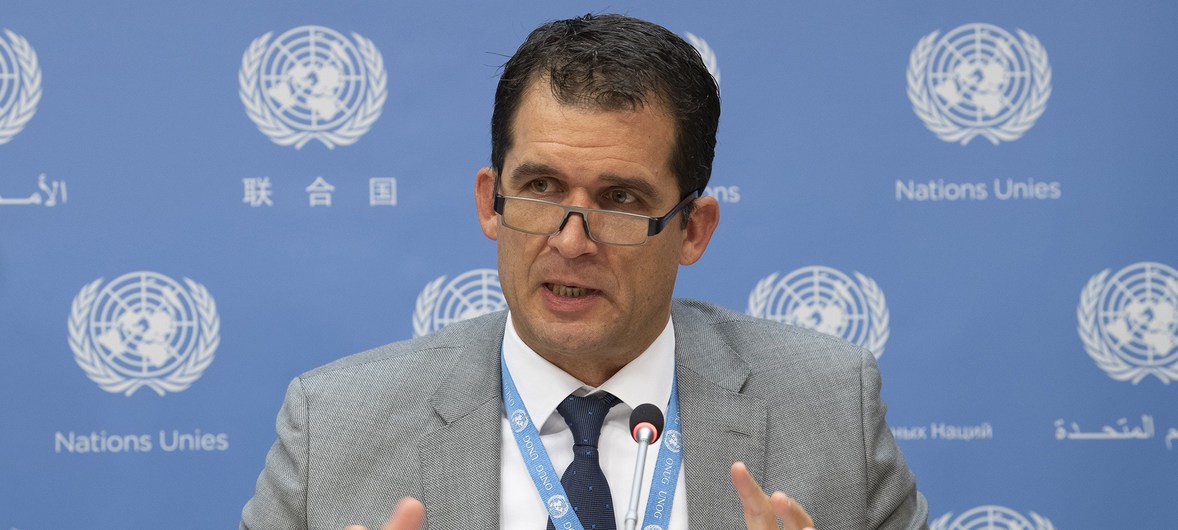
The United Nations’ special rapporteur Nils Melzer issued a statement on 5 January 2021 welcoming the UK judge’s ruling that blocked his extradition to the United States (a ruling that this week was under appeal).
Melzer went on: “This ruling confirms my own assessment that, in the United States, Mr. Assange would be exposed to conditions of detention, which are widely recognised to amount to torture or other cruel, inhuman or degrading treatment or punishment.”
Melzer said the judgement set an “alarming precedent effectively denying investigative journalists the protection of press freedom and paving the way for their prosecution under charges of espionage”.
“I am gravely concerned that the judgement confirms the entire, very dangerous rationale underlying the US indictment, which effectively amounts to criminalizing national security journalism,” Melzer said.
In summary Melzer said: “The judgement fails to recognise that Mr Assange’s deplorable state of health is the direct consequence of a decade of deliberate and systematic violation of his most fundamental human rights by the governments of the United States, the United Kingdom, Sweden and Ecuador.”
He added: “The failure of the judgment to denounce and redress the persecution and torture of Mr Assange, leaves fully intact the intended intimidating effect on journalists and whistleblowers worldwide who may be tempted to publish secret evidence for war crimes, corruption and other government misconduct”. (UNCHR)
A call for New Zealand to provide asylum
This week, US whistleblower Daniel Ellsberg applauded New Zealand’s independent global identity. And, he called for New Zealand’s Prime Minister Jacinda Ardern to provide an asylum solution should Julian Assange be released.
Dr Ellsberg’s call was supported by Matt Robson, a former cabinet minister in Helen Clark’s Labour-Alliance government and whom currently practices immigration law in Auckland.
Matt Robson said: “We can support this brave publisher and journalist who has committed the same crime, in inverted commas, as Daniel Ellsberg — to tell the truth as a good honest journalist should do. Our letter to our (New Zealand) government is a plea to do the right thing. To say directly on the line that is available, to (US) President Biden, to free Julian Assange.”
Australian-based lawyer Greg Barnes said: “New Zealand plays a prominent and important role in the Asia-Pacific region and it is not beyond the realms of possibility that the New Zealand government could offer Julian Assange what Australia appears incapable of doing, and that is safety for himself and his family.”
So why New Zealand?
Daniel Ellsberg said: “There are many countries that would have been supportive of Assange, none of whom wanted to get into trouble with the United States of America. Of all the countries in the world I think you can pick out New Zealand that has dared to do that in the past. I remember the issue over whether they would allow American warships into New Zealand harbours.
“Julian Assange should not be on trial,” Daniel Ellsberg said. “And given he is indicted, he should not be extradited. It is extremely important, especially to journalists.
“To allow this to go ahead is to put a target, a bull’s eye, on the back of every journalist in the world who might consider doing real investigative journalism of what we call national security. It’s to assure every journalist that he or she as well as your sources can be put in prison, kidnapped if necessary to the US.
“That is going to chill (journalists) to a degree that there will be more Vietnams, more Iraqs, more acts of aggression such as we have just seen. The world cannot afford that. A great deal rides on the policy matters on the possibility of freedom,” so said Daniel Ellsberg — the US whistleblower who blew the lid off atrocities that were committed in Vietnam.
Conclusion
Of course there are always complications, such as executive government leaders involving themselves in judicial matters. But sometimes a leader does the right thing, simply because it is the right thing to do — as Helen Clark did early on in her prime ministership when she extended an olive branch to people fleeing tyranny onboard a ship called the Tampa, which was under-threat of sinking off the coast of Australia. Helen Clark brought the Tampa refugees home to a new place called Aotearoa New Zealand, and we have been better off as a nation because of it.
Article by AsiaPacificReport.nz






